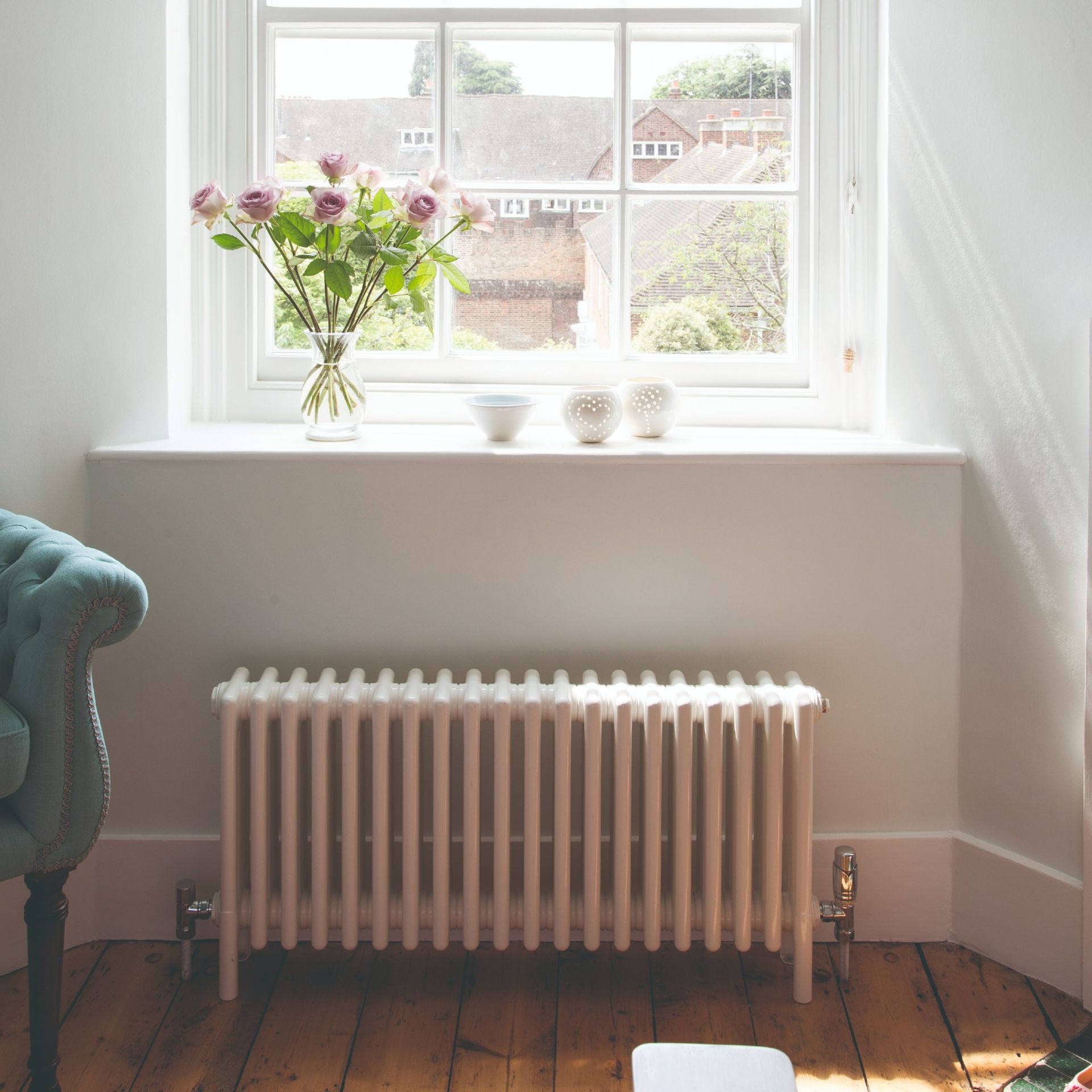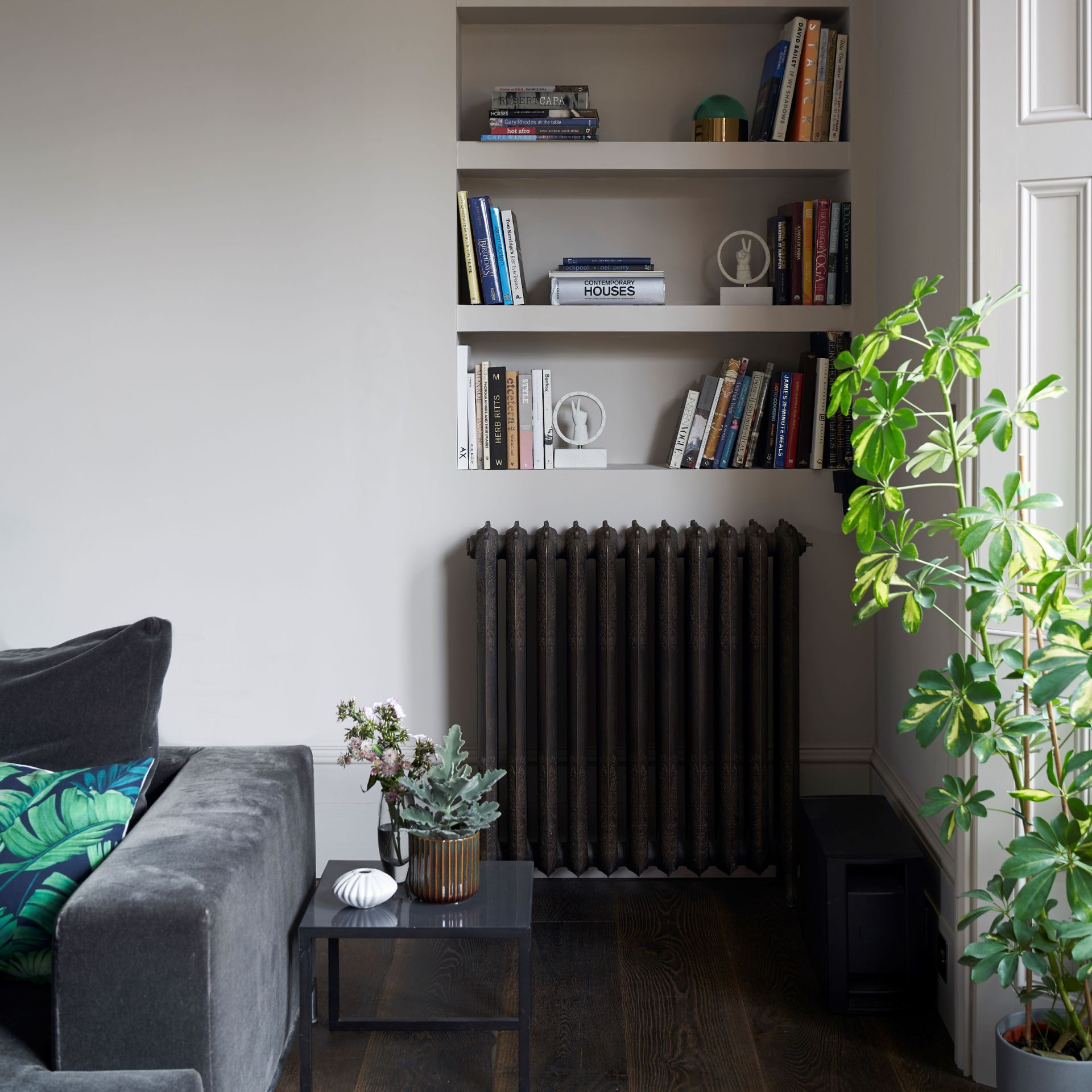Cleaning your radiator could save you up to £225 on energy bill – experts reveal how to do it best
Experts share their top tricks for how to clean your radiator to save on energy


Cleaning a radiator is often an overlooked chore - especially when it comes to the inside of the appliance and the area behind it. And we get it, it’s not exactly straightforward to reach and therefore do. But there are some clever and easy tricks for how to clean your radiator properly that you can employ to get rid of all the accumulated dust and dirt.
However, this isn't just about a tidy home, a clean radiator can lower energy bills by up to 25%. Experts warn that a dirty radiator needs to use more energy to heat up a room, which amounts to more money spent. Up to £225 more in fact.
Dirt buildup could even be the reason why your radiator isn’t heating up. So this is how to clean your radiator properly according to experts to avoid any issues and money wasted.

How to clean your radiator
‘With the average gas central heating bill now standing at around £900 a year for a two to three-bedroom house (based on Ofgem's average gas and electricity usage (currently 11,500kwh), ensuring that radiators are working efficiently is one of the most effective ways to cut costs,’ says Nancy Emery, heating expert at Drench. ‘Research suggests that by simply keeping your radiator system clean you could save up to 25% off your bills - that's around £225 a year.’
Rhiannon Moore from Toolstation further explains why cleaning your radiator is one of the best energy-saving tips. ‘Dust between the fins of a convector radiator can prevent heat from escaping. It can also cause the radiator to give off a burning or musty smell when heated.’
So this is how to clean your radiator to avoid that.

What you'll need
- Radiator brush like this one at Amazon
- Microfibre cloth like this one at Amazon
- Vacuum cleaner like the Shark Stratos Cordless Stick Vacuum at Amazon
1.Turn off the heating
'Before you begin cleaning your radiators, it's important that they are turned off,' says Andrew Collinge, a heating product expert at BestHeating. 'It is not only safer but prevents them from drawing up more dust while you clean.'
2. Start with a vacuum cleaner
Before you reach for a feather duster, Andrew recommends using your best vacuum cleaner to clean in, around and underneath the radiator. This will help to capture the dust, as opposed to unsettling it with a duster and pushing it back into the air.
'Use a vacuum to clear as much dust in and around the radiator as possible,' he explains. 'If your vacuum has them, use the smaller attachments to get inside down the fins.'

3. Use a radiator brush
To reach the remaining bits of dust and dirt after vacuuming the majority out, use a radiator cleaning brush like this one from Amazon. Remember to put down a towel under the radiator before embarking on this stage to protect your flooring. If you don't have one you can easily make your own.
'Take a stick or piece of wood and wrap a microfibre cloth or fluffy duster around it and secure with tape,' suggests Andrew. 'To get rid of the smaller pieces that get caught on the radiator fixings, use a hairdryer on a cold setting to blow these out down onto the towel.'
4. Wipe down with soap and water
'Fill a bucket with warm soapy water and using a sponge, wipe down the outside of the radiator,' says Andrew. 'Ensure you have a lot of soapy suds on your sponge and ring it out so that it is damp but not dripping.'
Dry your radiator thoroughly with a microfibre cloth like this one at Amazon to make sure the metal isn't left to rust. Don't use anything too abrasive as it could leave scratches.

5. Give your skirting boards a final check

After cleaning the radiator, give the surrounding wall and skirting boards a check to see if any of the radiator dust has fallen down. 'These may need wiping down too,' says the expert. 'Sometimes the heat can cause dirt and dust to stick to the wall. Give any marks a rub with the soapy sponge being careful not to damage any paintwork.'
Andrew concludes by saying: 'A few minutes spent dusting your radiators every time you do a weekly clean could result in a large cost-saving over time.' Worth the effort we say.
FAQs
Do radiators need to be cleaned inside?
‘Many people forget to clean inside and behind radiators as well as the front, which is where most of the dust can settle,’ Nancy at Drench explains.
So don’t skip on cleaning the inside of your radiator.

How do you clean the inside of a central heating radiator?
Vacuum the inside using a small-sized nozzle to remove as much dust as possible from inside the radiator fins,’ Rhiannon from Toolstation says.
Then use a radiator brush to reach any pieces of dust missed by the vacuum cleaner. ‘Use a long radiator brush to ensure all the dirt is removed from the inside,’ Nancy advises.
Finally, if there is still some dust left, use a hairdryer. ‘Use a hair dryer on the cold setting to blow out the remaining dust from inside the fins,’ Rhiannon concludes.
How often should you clean your radiator?
‘Homeowners should give their radiators a deep clean at least once a year to remove any built-up debris. However, it's best to incorporate a light dusting into the weekly cleaning routine to prevent any larger build-ups,’ Rhiannon recommends.

Why not go a step further and learn how to bleed a radiator to keep your heating in good working order? This is another easy way to save you money in the long term.
Get the Ideal Home Newsletter
Sign up to our newsletter for style and decor inspiration, house makeovers, project advice and more.

Rebecca Knight has been the Deputy Editor on the Ideal Home Website since 2022. She graduated with a Masters degree in magazine journalism from City, University of London in 2018, before starting her journalism career as a staff writer on women's weekly magazines. She fell into the world of homes and interiors after joining the Ideal Home website team in 2019 as a Digital Writer. In 2020 she moved into position of Homes News Editor working across Homes & Gardens, LivingEtc, Real Homes, Gardeningetc and Ideal Home covering everything from the latest viral cleaning hack to the next big interior trend.
- Sara HesikovaNews Writer
-
 Sam Thompson and Zara McDermott's 'brilliant design choice' redefines the ordinary all-white kitchen, say experts
Sam Thompson and Zara McDermott's 'brilliant design choice' redefines the ordinary all-white kitchen, say experts'It's a design strategy that effortlessly marries style with substance'
By Jullia Joson
-
 Can you plant bulbs in January? Garden experts have warning if you're planting spring bulbs late
Can you plant bulbs in January? Garden experts have warning if you're planting spring bulbs lateHave you missed the boat?
By Lauren Bradbury
-
 These are the things you should never store in a kitchen drawer, according to organisation experts
These are the things you should never store in a kitchen drawer, according to organisation expertsNot sure what to keep where in your kitchen? We’ve got you covered
By Lindsay Blair


